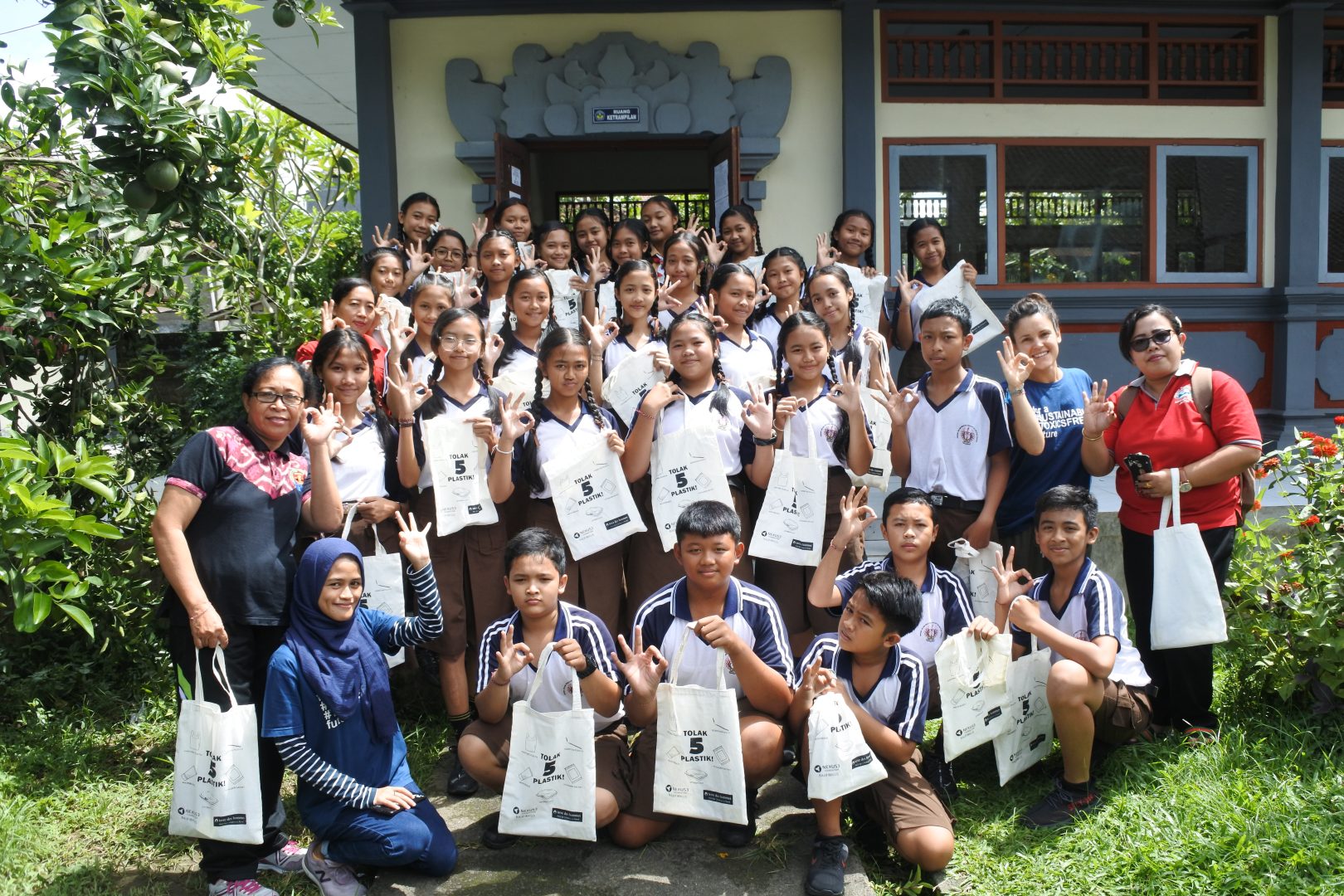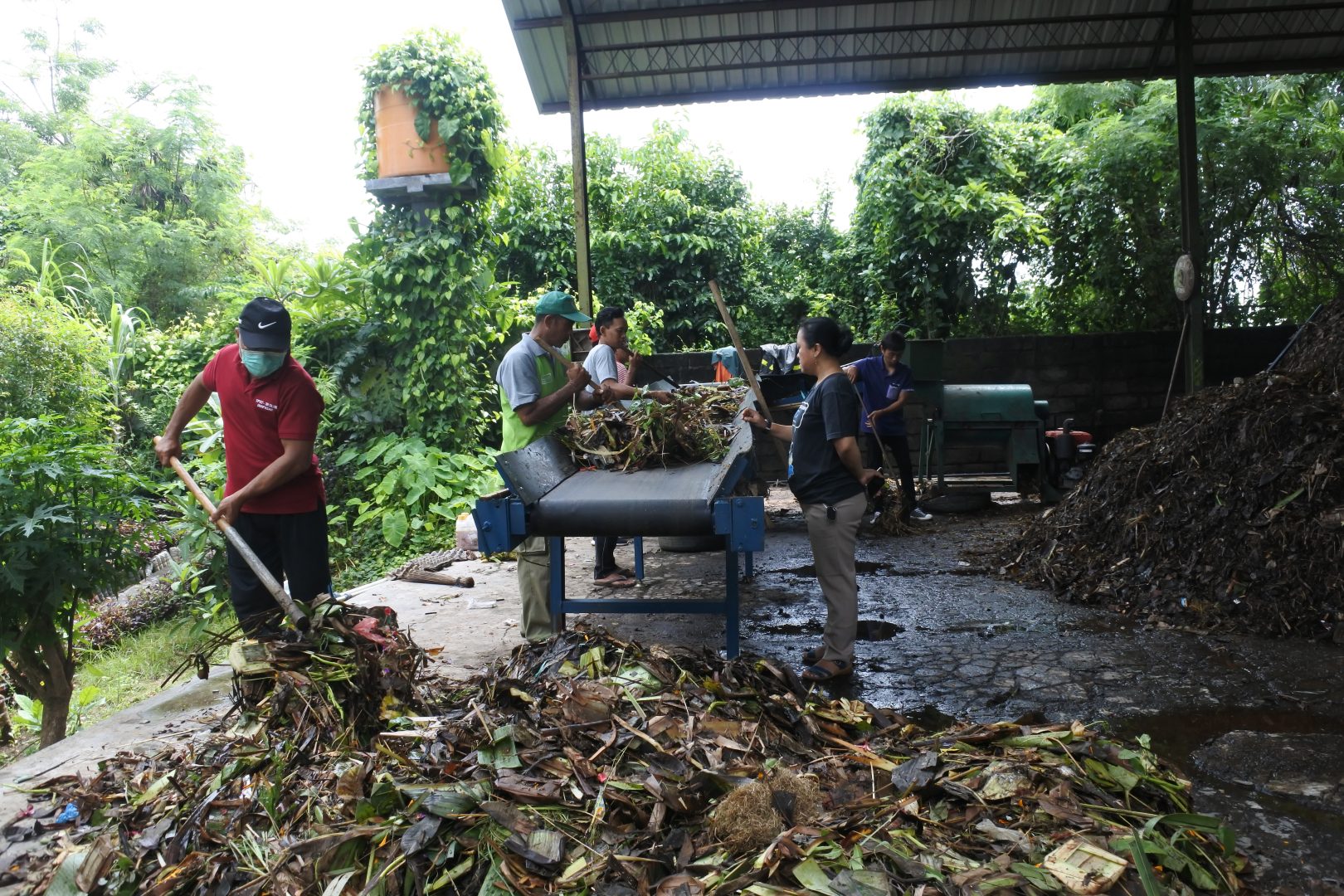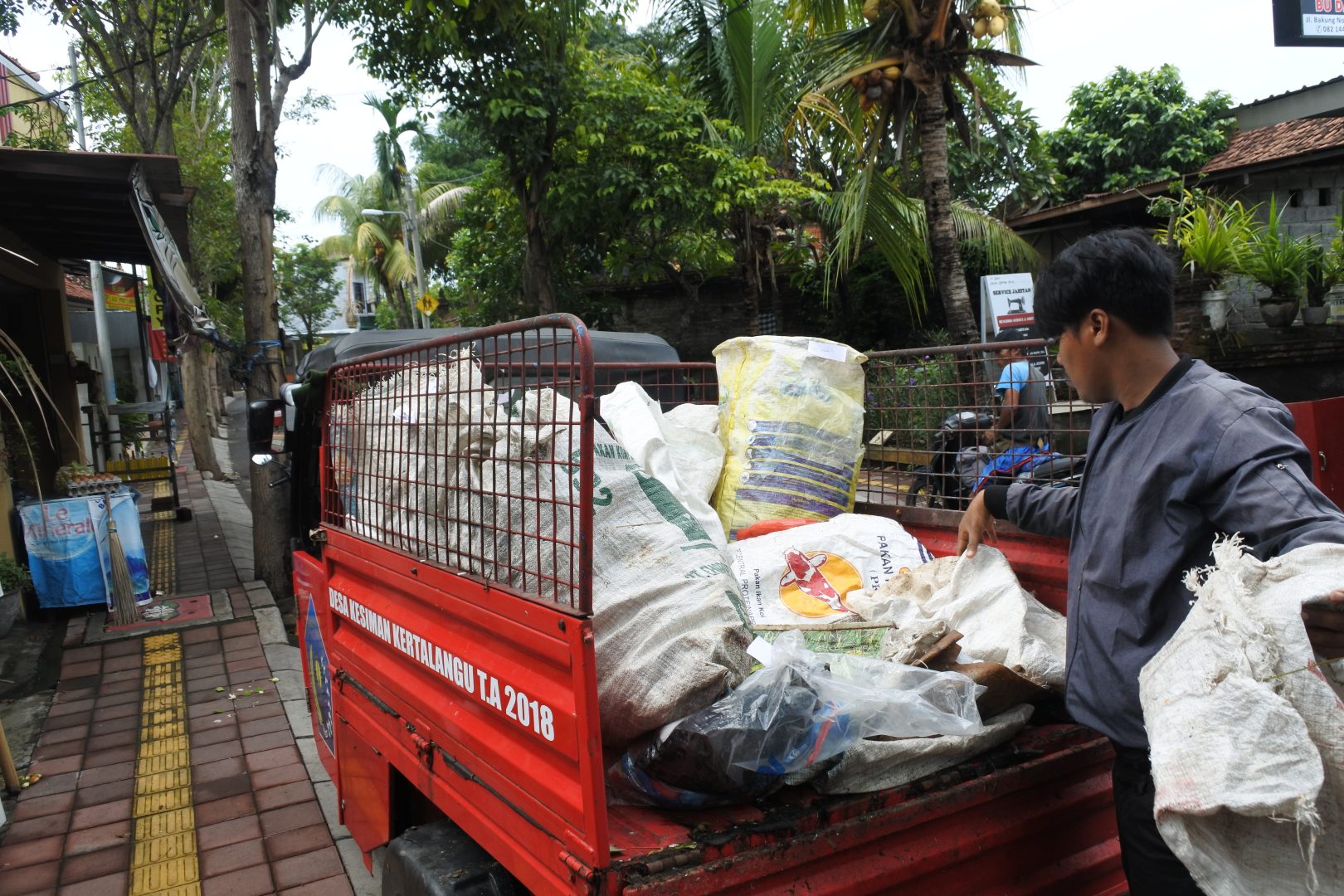Tapping its members expertise for a good cause, always for a good cause.
Interview with Nindhita Proboretno and A. Vancher Dipatiukur by Sonia G. Astudillo
Whenever we meet our members from Indonesia, I am always in awe. At first, I thought it was my fascination with Indonesian books and authors like Pulang by Leila Chudori and Vengeance is Mine by Eka Kurniawan but the more I got to know them, the more I know the reasons behind it.
Nindhita Proboretno and Vancher Dipatiukur, Aliansi Zero Waste Indonesia (AZWI) Co-Coordinator and Communication Officer, respectively, share my view, “Every member organization of AZWI has their expertise and our role as the secretariat is to amplify that. AZWI is a very good resource because for every environment issue, we have someone to refer it to.” They said emphasizing that YPBB Bandung takes the lead on Zero Waste modeling, Nexus 3 on waste trade, incineration, and research, ICEL on regulations and advocacies related to law, Gerakan Indonesia Diet Kantong Plastik on plastic bag regulation, PPLH Bali on school education, ECOTON on research and advocacy, Greenpeace Indonesia and Walhi (Friends of the Earth) on people movement, and Komunitas Nol Sampah Surabaya on advocacy and education and public campaign. “Our role is to connect all the pieces of the puzzle,” said Nindhita.
Established in 2016, AZWI has 9 member organizations: Environmental Conservation Organization (ECOTON) in East Java, Gerakan Indonesia Diet Kantong Plastik (GIDKP) in Jakarta, Greenpeace Indonesia, Indonesian Centre for Environmental Law (ICEL) in Jakarta, Komunitas Nol Sampah Surabaya in East Java, Nexus3 Foundation in Bali, Pusat Pendidikan Lingkungan Hidup (PPLH) Bali, Wahana Lingkungan Hidup Indonesia (WALHI) in Jakarta, and YPBB Bandung.
These organizations harmonize their efforts in mainstreaming Zero Waste strategies, with emphasis on the waste management hierarchy, material life cycle, circular economy, and correct use of the Zero Waste approach.
AZWI was first conceptualized in 2016 after the Break Free From Plastic movement meeting in Tagaytay, Philippines. In 2017, Indonesia was faced with plans from the government to build incinerators in seven cities. CSOs got together and filed for a judicial review of waste-to-energy incineration. “The members decided to build an alliance to make the campaign stronger. At that time, it was really hard to fight against WtE especially since it is backed by the government,” said Nindhita.” The campaign was successful because the review ordered a stop to the project. We received support from GAIA who wrote support letters stating the dangers of incineration. However, currently we are again faced with more proposals, this time in 12 cities.”
What are AZWI’s top priorities?
Our top priority is to amplify the work of our members in promoting Zero Waste solutions and rejecting false solutions. We work on six issues: Countering false solutions (e.g. waste-to-energy incineration, chemical recycling, ecobrick, plastic asphalt, oxo-degradable plastic etc.), waste trade, single-use plastic reduction, Zero Waste Cities, upstream advocacy, and fair transition.
The way we work is we look at what our members have done, and we amplify that and also look at the gaps that need to be filled.
What are AZWI’s ongoing campaigns?
There is Project BøOST under the Plastic Solutions Fund. It stands for Ban the big 5, ø waste, pOlicy advocacy, and STop false solutions. This is a 3-year project and all nine organizations are involved in the project. As the Secretariat, we look at how we can collaborate with each other. We want all organizations to achieve the desired outcome. So far, everything is working well.
What is AZWI’s biggest accomplishment or achievement?
It is the judicial review wherein civil society filed a petition for review to the Supreme Court demanding a revoke of Presidential Regulation No. 18 of 2016 on the Acceleration of Waste-to-Energy (WtE) Power Plants in seven cities. It was the tipping point of AZWI. We succeeded in rejecting the presidential regulation promoting waste-to-energy incineration in the country.
What challenges are you facing? How is your work impacted by the COVID crisis?
The main challenge currently is in implementing the projects in the proposal. With COVID, we had to reschedule activities and meeting events shifted to webinars. The outcome is not the same because there are things that are easier to achieve in a face-to-face meeting. With everything online now, coordination is more challenging. Communication between each other is handled slowly and it is mostly because of the pandemic.
What are the challenges working as an alliance?
All the members have their own expertise and uniqueness. The challenge is how to make them work as one or come out with one voice. When campaigning, we make sure that the campaign is aligned with the work of all the other members.
Time too is another factor. Members are busy with the work of their organizations. Decision-making takes a while. We managed though. For anything urgent, we approach them individually.
What about the benefits of being in an alliance?
As an alliance, the work has more impact. If you are campaigning alone, the impact is not that strong. But if you bring in AZWI and all the members, with its pool of expertise, the campaign will have more weight and chances of success is much higher. Add to that is the feeling of being part of a bigger community.
How do you see your organization’s work evolving in the next years?
After the new secretariat was formed, it is much better than before. We are still developing. We want to make it bigger and for people to know about us. We are running towards the target. We will continue to contribute and address environmental issues. Our projects such as expanding Zero Waste City model, promoting Zero Waste policies and solutions, and Ban the Big 5 (5 single-use plastic: plastic bag, plastic straw, sachet, styrofoam, microbeads) will become huge.
Globally, for now the secretariat is formalizing how everything works. Hopefully in the next year, we want AZWI to be involved in global platforms.
With regards to membership expansion, we have been receiving proposals from organizations to join. There is an ongoing discussion on what are the requirements and the process. That is the direction we want to go to if we want to amplify the work and combat plastic.
How do you envision a just and equitable recovery from COVID-19? How can your organization’s work be part of the solution?
Even during the COVID-19 pandemic, we continued our work on waste issues. To counter the government’s push for incinerators, AZWI has developed communication materials and hosted webinars to inform the public about the dangers of these burning machines. Meanwhile, YPBB Bandung has initiated conversations about improving the welfare of waste pickers and collectors.
What are your thoughts on the waste crisis that many countries in your region (and in the world) are living right now?
The waste crisis is not yet over – and it will not be solved by burning waste. The Indonesian government still continues to push for WTE incinerator proposals in 12 cities in the country, even though it’s not the real answer to our waste problems. Many waste pickers and collectors – our frontliners in this waste crisis – meanwhile remain excluded from the formal work sector, thus not getting enough livelihood support. In Indonesia, for example, many collectors still rely on voluntary fees paid by households, which are not enough to support their families.
How does your work on waste relate to social justice?
Just transition is one of our strategic issues. We know that there are people working and living near the landfill. The question is, if they do not work as waste pickers, what will they do? In AZWI, we try to address that by supporting communities and the local people.
































